Can You Swim With New Piercings? Safe Practices And Tips
Keep your piercings safe and chic while making a splash.
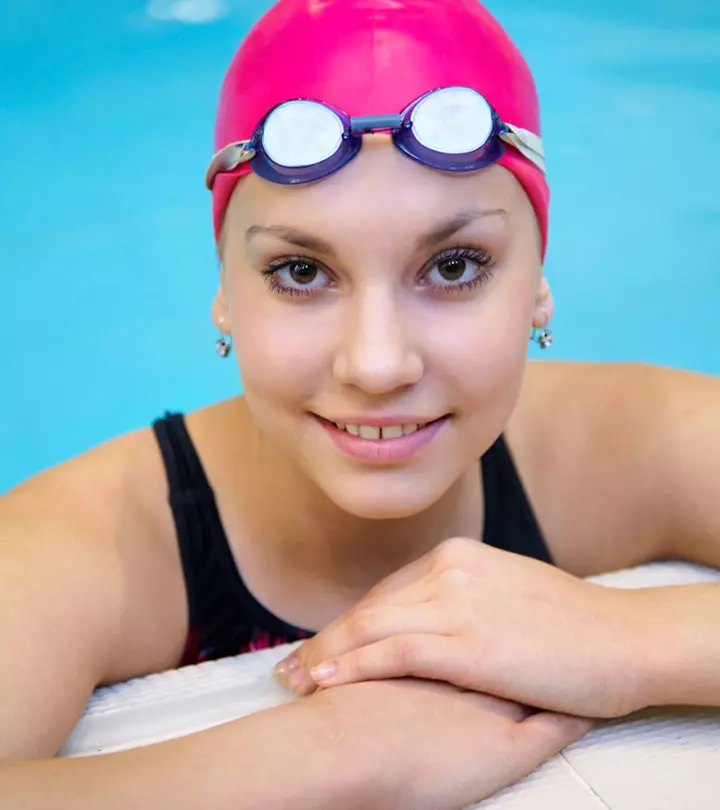
Image: Shutterstock
Imagine relaxing in your swimming pool on a hot summer day with your brand-new piercing. Sounds refreshing and amazing, right? But before you go meet your piercer and pack up your bags for vacation, it begs the question, “Can you swim with a new piercing?” While the offer sounds very tempting, the answer is not that simple and requires careful consideration and thought. But fret not water babies and piercing enthusiasts. We have the answer to your dilemma. In this article, we will discuss the right time to go swimming and the safety practices you need to follow to ensure proper healing of your piercing. Keep reading to know more.

In This Article
Can You Swim With New Piercings?
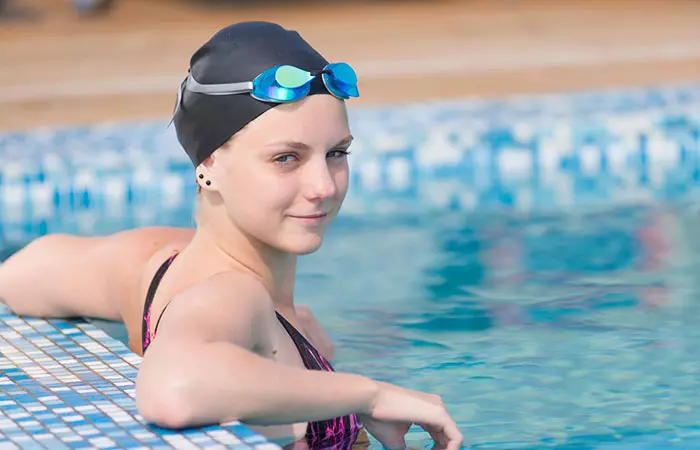
If you are considering taking a dip with your fresh piercings, it might not be the best idea. It is recommended to give those piercings time to heal properly before hitting the water, as it might expose you to germs and contaminants, leading to an increased risk of developing an infected ear piercing, which could ultimately slow down healing (1). However, the risk of infection may decrease and you can go for a swim once the piercing has healed.
So, before you take that plunge, it is important to understand how swimming in different bodies of water can affect your healing process and health. Scroll down to understand whether you can swim in the ocean after getting a piercing.
Swimming In The Ocean
Although saltwater can be beneficial for healing, it is wise to wait at least two weeks before swimming in the ocean with a fresh piercing. The simple reason is that salt water from the ocean may contain bacteria, increasing the risk of contracting staph infections such as methicillin-resistant Staphylococcus aureus (MRSA) (2), (3). Therefore, it is important to maintain cleanliness and keep the area dry during your swim to ensure the best possible outcome for your piercing.
Oceans may be home to several strains of bacteria. But do swimming pools pose the same risk, especially with a fresh piercing? Find out below.
Swimming In The Pool
The chlorine found in pool water can be harsh on fresh piercings and dry out the skin surrounding the piercing, making it more susceptible to inflammation and discomfort (4). There are chances that the swimming pool also contains bacteria if it is not maintained properly. Therefore, it is best to wait till the piercing has completely healed before going for that relaxing swim.
With taking a dip in that swimming pool out of the question, can you go for a swim in the lake around your house? Scroll down to find out.
Swimming In The Lake
Typically, you should wait at least two to three weeks before taking a dip. However, it is best to wait until the piercing has healed completely as lakes contain natural bacteria and microorganisms that can increase the risk of infection if they come into contact with a healing piercing (5).
It is important to remember that the piercing location and healing period will determine when you can go for a swim safely. Check out the next section to know when the same for a belly button piercing.
Key Takeaways
- Swimming with new piercings can lead to bacterial infections and slow healing.
- It is recommended to wait at least two weeks before swimming in the ocean, pool, or lake after getting a new piercing.
- If swimming is unavoidable, cover the piercing with water-resistant bandages and clean the area thoroughly afterward to prevent infections.
Belly Button Piercing And Swimming

A belly button piercing may take 6 months to 1 year to heal completely (6). Although professional piercers usually recommend avoiding swimming during the healing phase, you may swim with the piercing covered to ensure it is safe from contamination.
An ear piercing may seem small but it requires the same amount of care as any other piercing. Scroll down to see how long you must wait before going for a swim with an ear piercing.
Ear Piercing And Swimming

Ear piercings typically require 6-8 weeks to heal completely (6). But if you really want to go for that swim, it is advisable to wait a minimum of two weeks to allow the piercing adequate time to start the healing process. Ensure you cover your piercing with a cap or waterproof bandage to protect it from infections. While all this is enough if you are swimming in the ocean, you would need to wait for more than 8 weeks if you are getting into a public pool. Nose piercings are cool and stylish and allow you to show your unique personality. But can you swim with them? Find out below.
Nose Piercing And Swimming
It may take around 6 months for nose piercings to fully heal (6). It is recommended to wait at least a month before considering swimming. Also, ensure you do not catch nasal infections after swimming as it may cause a delay in the healing process (7).
If you decide to swim before your piercing fully heals, it is essential to cover the area to protect it from water exposure. Keep reading to learn how to do it.
How To Cover Your Piercings While Swimming

If you really want to go for that swim and cannot wait longer, the trick is to cover it well. You can follow the tips given below to protect the piercing from water exposure:
Ear Piercing
- Cover your piercing with a waterproof bandage. Test it under water to ensure the seal is tight.
- Use a swimming cap designed to cover the ears.
- Tie up your hair to keep it out of the way and then pull the swimming cap over the ears.
 Quick Tip
Quick TipNose Piercing
- You may apply a waterproof adhesive bandage over the piercing.
- You may use a small waterproof nasal plug or specialized nasal bandage to prevent water from entering the nostril.
Belly Button Piercing
- Apply a waterproof bandage over the piercing area.
- Wear a fitting swimsuit over the bandage to provide additional coverage and support for the piercing. You need to ensure the waterproof seal is intact even with all the stretching and large movements.
Eyebrow Piercing
- Use a waterproof adhesive bandage or tape to cover the piercing.
Lip Piercing
- Apply a waterproof adhesive bandage or waterproof medical tape over the piercing.
- Use a specialized lip piercing retainer made of waterproof materials to protect the piercing during swimming.
 Quick Tip
Quick TipOnce you are done with your swimming session, it is essential to clean it to reduce the risk of infection and other complications. Scroll down to the next section to learn how to take proper care of your piercing post-swimming.
How To Care For Your Piercing After Swimming
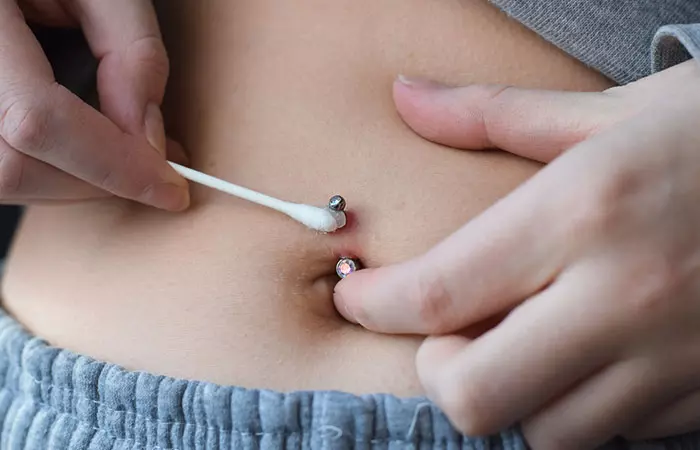
Following the aftercare instructions given below will ensure your piercing heals safely and quickly. A few aftercare tips include (1):
- Thoroughly cleanse your body to remove any dirt or contaminants before entering the pool or ocean.
- After swimming, clean the piercing with a saline solution or the aftercare solution suggested by your piercing professional to remove any chlorine, salt water, or harmful bacteria that may have accumulated during swimming.
- Use a clean towel to pat the piercing dry. Avoid vigorously or harshly rubbing the piercing to prevent irritation.
- Diligently follow the recommended cleaning and aftercare advice provided by your piercer.
- Wash your hands properly before disinfecting the piercing or applying any aftercare products to prevent introducing bacteria or other contaminants to the piercing site.
- Avoid using antibacterial soaps or liquid soaps as they may dry and irritate the piercing
- Avoid excessive cleaning as it can lead to skin irritation and prolonged healing.
Can you swim with a new piercing is one of the most commonly asked questions after going through the piercing procedure. It is generally recommended to avoid swimming before the pierced site is healed completely. However, even after the healing phase is over, it is important to proceed with caution to avoid the risk of infection and inflammation. Therefore, cover your piercing with waterproof bandages or protective gear. Also, clean the piercing thoroughly to remove potential irritants, and follow your aftercare routine diligently to ensure a smooth healing process for your new piercing.
Frequently Asked Questions
Is it advisable to avoid certain swimming activities, such as diving or water sports with a new piercing?
Yes, it is generally advisable to avoid intense water sports with a new piercing as these activities may increase the risk of tearing or irritating the piercing site.
Can swimming affect the jewelry or cause it to move or become dislodged?
Yes, the water pressure and movement during swimming may dislodge the piercing jewelry. Plus, exposure to chlorine, salt water, or other chemicals in swimming pools or oceans can affect the jewelry’s integrity over time, potentially leading to corrosion or damage—unless the jewelry is made of durable materials like surgical steel or titanium. If you must go for these activities, use waterproof protection for additional support and stability for the piercing.
Keeping your piercing away from water bodies such as pools, lakes, or oceans is crucial to prevent infections and complications. Check out this video to gain valuable insight into some safety tips and more.
References
Articles on StyleCraze are backed by verified information from peer-reviewed and academic research papers, reputed organizations, research institutions, and medical associations to ensure accuracy and relevance. Read our editorial policy to learn more.
- SUGGESTED AFTERCARE FOR BODY PIERCINGS
https://safepiercing.org/aftercare/ - Staphylococcus aureus and methicillin-resistant S. aureus (MRSA) at ambient freshwater beaches
https://pubmed.ncbi.nlm.nih.gov/26322754/ - [Infections caused by piercing and tattoos–a review]
https://pubmed.ncbi.nlm.nih.gov/12836454/ - Skin irritation in users of brominated pools
https://pubmed.ncbi.nlm.nih.gov/11260785/ - Skin, soft tissue and systemic bacterial infections following aquatic injuries and exposures
https://pubmed.ncbi.nlm.nih.gov/25374398/ - Can I go swimming after a piercing?
https://www.nhs.uk/conditions/infected-piercings/ - Cutaneous Wound Healing: An Update from Physiopathology to Current Therapies
https://repositorio.usp.br/directbitstream/499e6e85-edd9-4528-9df8-9af1cd08eac1/003074730.pdf
Read full bio of Eve Phillips
Read full bio of Shreya Mukherjee
Read full bio of Eshna Das
Read full bio of Aparna Harry






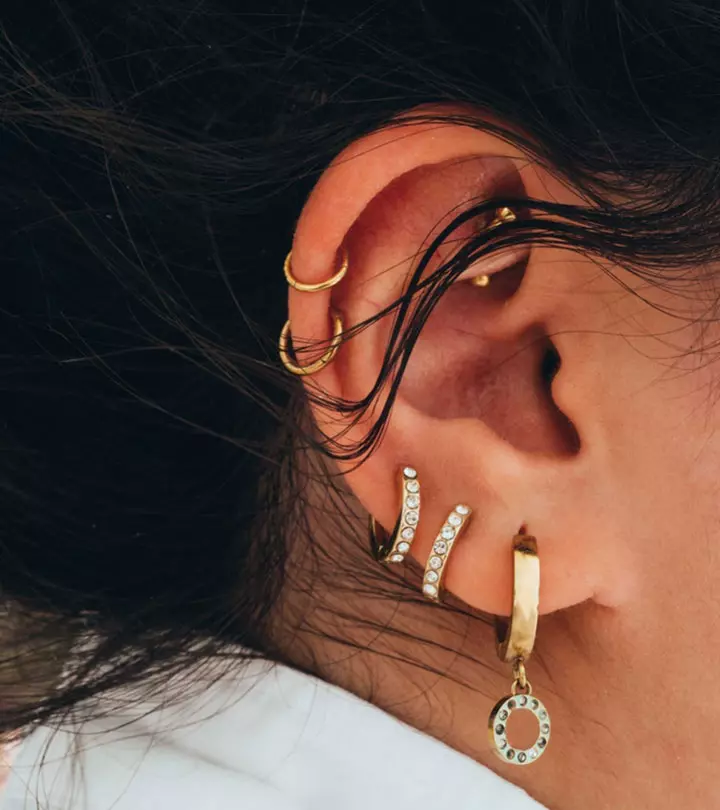
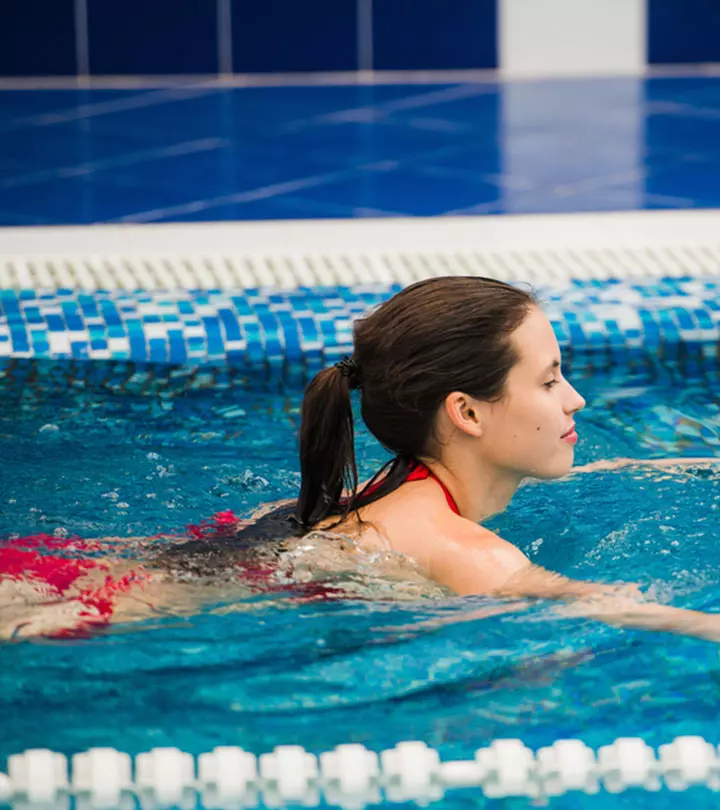

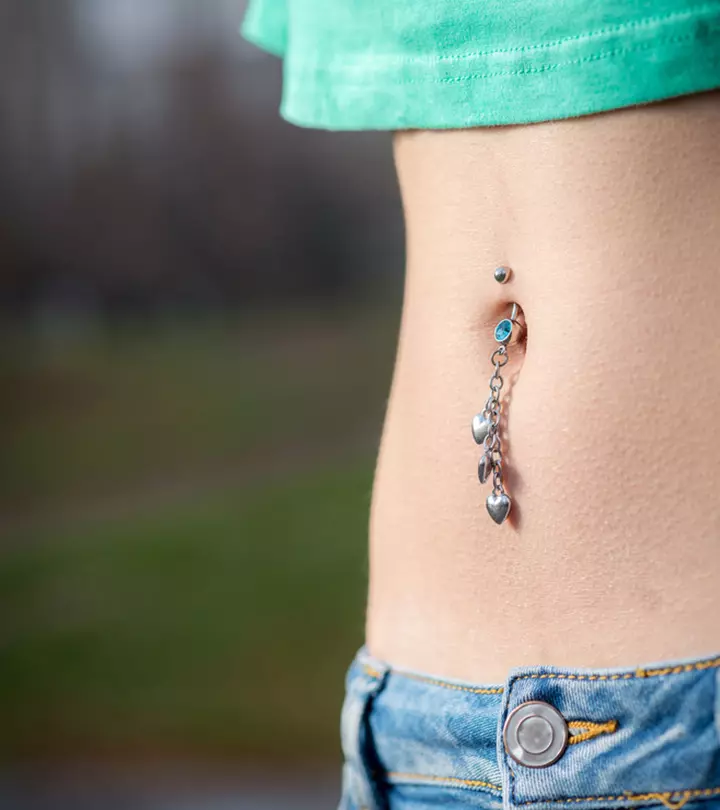



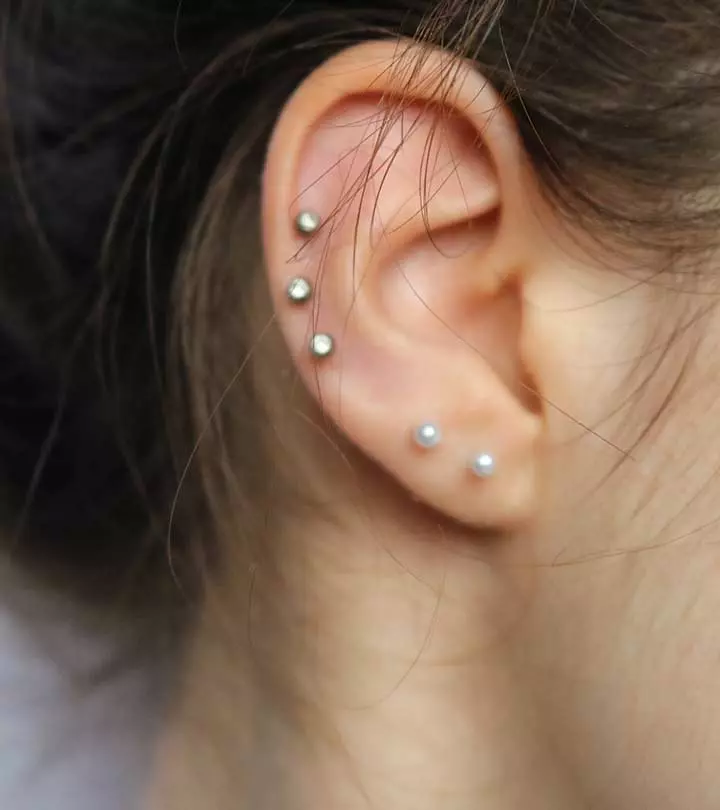













Community Experiences
Join the conversation and become a part of our empowering community! Share your stories, experiences, and insights to connect with other beauty, lifestyle, and health enthusiasts.